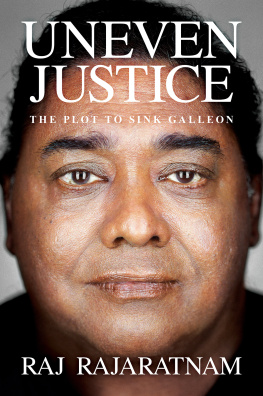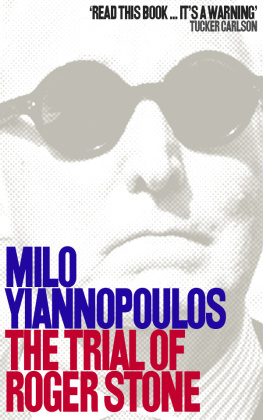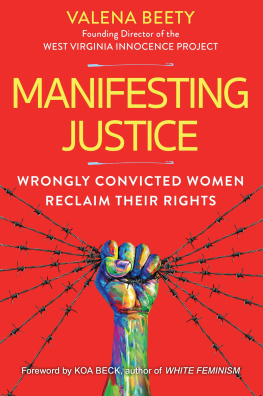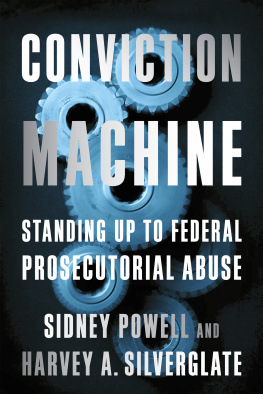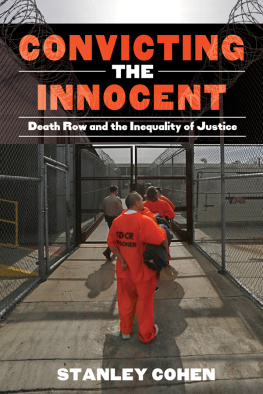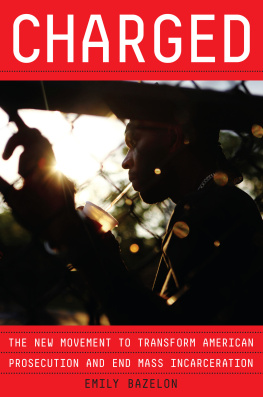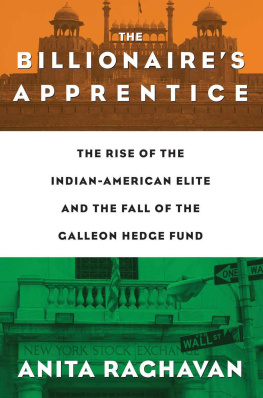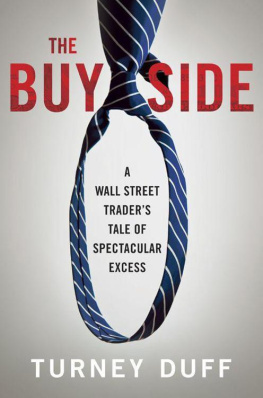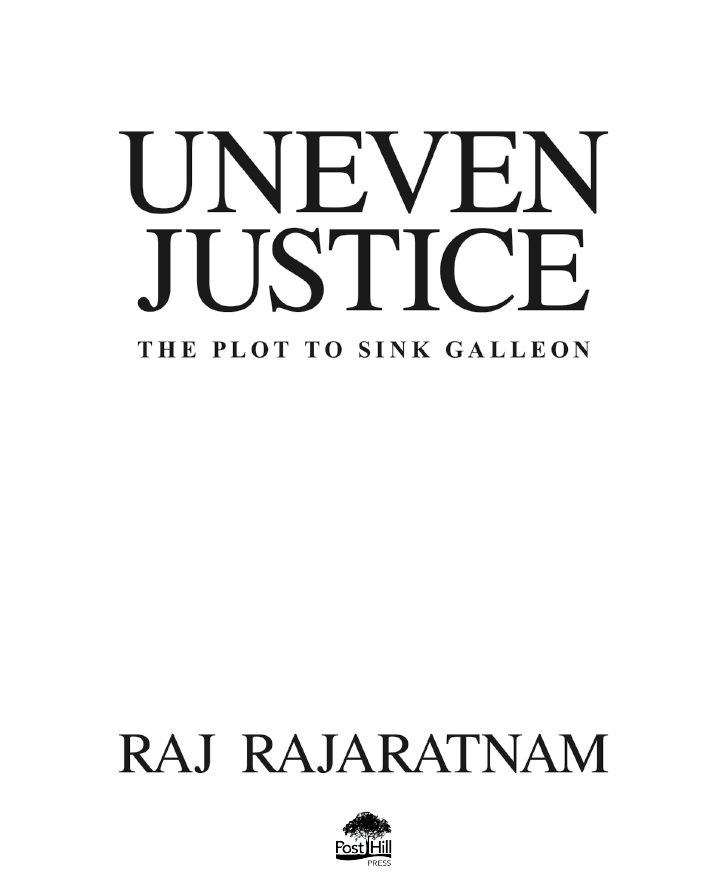
A POST HILL PRESS BOOK
ISBN: 978-1-63758-281-7
ISBN (eBook): 978-1-63758-280-0
Uneven Justice:
The Plot to Sink Galleon
2021 by Raj Rajaratnam
All Rights Reserved
Cover photo by Martin Schoeller
This is a work of nonfiction. All people, locations, events, and situations are portrayed to the best of the authors memory.
No part of this book may be reproduced, stored in a retrieval system, or transmitted by any means without the written permission of the author and publisher.

Post Hill Press
New York Nashville
posthillpress.com
Published in the United States of America
To all those who were wrongfully incarcerated
Table of Contents
I n October 2009, I was arrested and charged with insider trading. I chose to fight the charges against me because I was innocent.
The prosecutors alleged that 0.01 percent of all my trades between 2005 and 2009 were illegal.
I understood that in the U.S., there is a 97 percent conviction rate (similar to China and Russia) and a punitive trial penalty for those who dare to go to trial. Empirical studies have shown that the trial penalty is just about double that handed to those who plead guilty. If a defendant agrees to become a cooperating witness, helping the government with testimonyregardless of the truthto convict another defendant, the cooperating witness gets a much-reduced sentence and in many cases, just parole.
I understood the stakes. I chose to go to trial. Why? Its a question Ive since been asked hundreds of times. Why? Why jeopardize everything? Because to my core, I believed I would get a fair hearing. And with a fair hearing and a rational exposition of the facts, the truth would have prevailed. Until my arrest, I had the highest regard for the Department of Justice (DOJ) and the Federal Bureau of Investigation (FBI). Until 2009, I believed that most Americans felt that way. Since then, of course, the American public has become jaded about the sanctity of these institutions due to multiple examples of overreach and excess. Certain DOJ and FBI sections operate, each attempting to further its own agenda, with no regard for Constitutional checks and balances. The terms fake news, the Deep State are bandied about with almost wild abandon, humor, and satire. The public now assumes the existence of fake news alongside authentic news with little effort toward journalistic integrity. During the time of my arrest and trial, information from the media, DOJ, and FBI was absorbed with unquestioned Trust, although some would argue that the Deep State had existed for many years. While I still believe that the vast majority of those who work for the DOJ and the FBI are people of integrity, this book is an attempt to shed light on the corrupt few who act with impunity and destroy lives and families to further their career ambitions.
From the moment of my arrest, the narrative of my story was recast with a precise agenda shaped to direct public attention away from the stark horror of the 20072008 financial crisis while promoting media idolatry of the publicity-hungry and ambitious rookie U.S. Attorney Preet Bharara, who became a demigod, the Sheriff of Wall Street riding into battle against me, a villain relentlessly personified as evil incarnate on the front pages of every major newspaper around the world. Wanton disregard for the law, acknowledged by the judge at my trial, allowed a corrupt element within the FBI, Agent BJ Kang, to falsify documents leading to my arrest and falsify testimony leading to my conviction. I faced prosecutorial misconduct at its finest. The overzealous media, feasting on a human story they could sell every day, also profoundly prejudiced any hope of gathering an impartial jury by the time of the trial. These three institutions, ostensibly guardians of the public interest, charged with impartiality and integrity, bore down in a concerted campaign to make me the face of the financial crisis. My arrest and subsequent trial, a two-year process, deflected attention from a glaring fact: not one major banker was held accountable for the 2008 global meltdown. No arrests. No searing prosecution. No jail time.
In the midst of a financial crisis that brought a multitrillion-dollar world economy to its knees, these three institutions, independently and collectively, targeted a tiny slice of the U.S. financial industry, hedge funds; honed in on a single hedge fund, Galleon; isolated only me, its CEO, who had recently become one of the few immigrants on Wall Street to be identified as a billionaire; and built a fabulous and intricate tale of sex, drugs, and rock n roll to entertain the public and build their own reputations. Their two-year reality series was successful beyond measure.
Preet Bharara, then the U.S. attorney for the Southern District of New York (SDNY), used my prosecution to launch an unprecedented press campaign to promote himself. Bharara ran roughshod over the truth, standard DOJ protocols, and the offices own dignity in his extraordinary zeal to convict me. Time Magazine put Bharara on its cover, their headline proclaiming This Man Is Busting Wall St. It was Preets finest moment. Bharara did not touch the real perpetrators of the 2008 financial crisis: Wall Streets top bankers. In 2014, in a rare moment of sheepish public acknowledgement, both Bharara and the influential New York Magazine observed that the insider casesmade our careers, but they (didnt) change the world.
Bhararas impotent and poisoned approach to the nonprosecution of criminal activity on Wall Streetranging from the mortgage bankers who precipitated the financial crisis (Goldman Sachs, Lehman Brothers), the money-laundering of drug cartels (HSBC), and the encouraging of tax evasion by U.S. citizens (UBS, CSFB)is now the defining legacy of his tenure. Each of these firms settled civil charges by paying billions of dollars in fines using shareholder money, but not one single person was criminally charged or individually fined. Every one of the insider trader prosecutions was criminal. The towering hypocrisy remains startling.
The prosecution under Bhararas watch advanced a theory of trading to prosecute me and several others that the Appeals Court of the Second Circuit subsequently overruled, criticizing it for doctrinal novelty. Soon after my trial in May 2011, then-Commissioner of the Securities and Exchange Commission (SEC) Mary Shapiro gloated that the beauty of insider trading laws is the flexibility in interpreting them.
The lead prosecutor in my case, Jonathan Streeter, said in December 2012, Insider trading cases are confusing to investment professionals. He went on to add, There is incredible confusion on what is illegal and its a real problem. The law is very complicated and the lines are a bit murky. A U.S. attorney, the prosecution in my trial, and the head of the SEC all acknowledged their reservations about a murky set of laws but had no murky reservations using them liberally in my case and at my trial.
The FBI agent overseeing my case, Special Agent Kang, lied on his sworn affidavit to obtain wiretap authorization of my phone. Recognizing there had been government misconduct, Judge Richard Holwell, who presided over my trial case, issued a searing criticism of the wiretap application used by Agent Kang, reprimanding him for reckless disregard for the truth with respect to both probable cause and necessity.
Kang did not stop at blowing through truth on paper. He menaced and threatened my family and employees with prosecution, frightened away crucial defense witnesses, and routinely leaked false information to the media, churning up an unabated feeding frenzy that shredded me in the court of public opinion. Kang took his cues from the playbook of publicly reviled former FBI Director J. Edgar Hoover. I was tried, convicted, and sentenced in the press even before I fully understood the charges against me. The atmosphere was so toxic that my lead counsel, veteran defense lawyer John Dowd, said the prejudicial publicity orchestrated by the USA was so palpable in the courtroomIt was the most toxic atmosphere of any case I ever tried.
Next page
